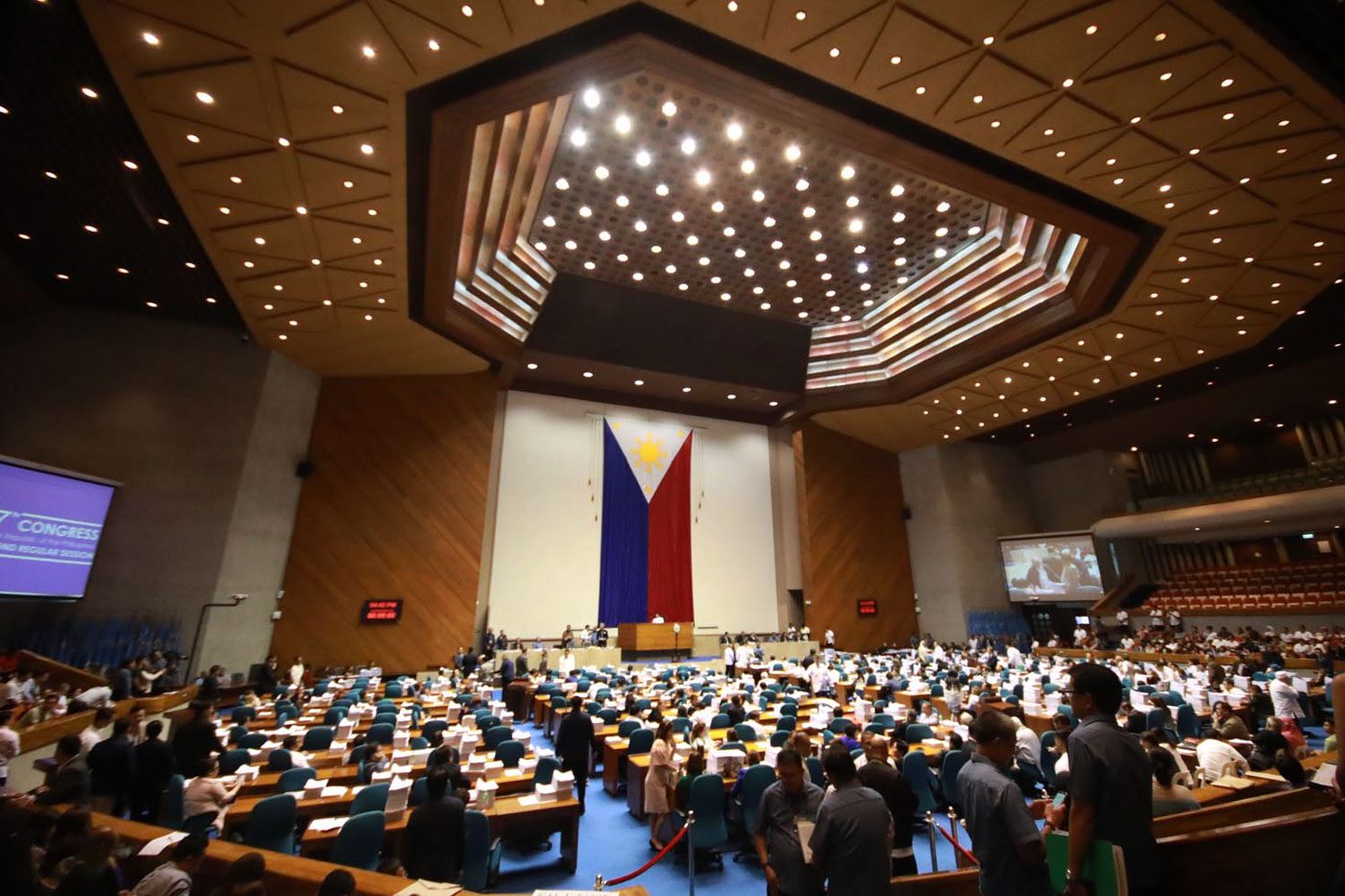SUMMARY
This is AI generated summarization, which may have errors. For context, always refer to the full article.

MANILA, Philippines – After the coup that divided the House of Representatives for two weeks, lawmakers are crossing party lines to oppose a cash-based budgeting system, including its application in the proposed P3.757-trillion 2019 budget.
A still-unnumbered resolution is being circulated among lawmakers in the majority, minority, and independent minority blocs, requesting the Senate to return House Bill 7302 back to the lower chamber.
HB 7032, which the House approved on 3rd and final reading on March 20, institutionalizes the cash-based budgeting system. The measure is pending at the Senate.
In effect, the new resolution also expresses lawmakers’ rejection of the proposed 2019 budget if it follows a cash-based budgeting system.
House appropriations chairperson Karlo Nograles said they now want the 2019 budget reverted to an obligations-based budgeting system. (READ: DPWH on cash-based 2019 budget: ‘Challenging, but we will adjust’)
“So after the caucus that happened yesterday, the members of the House of Representatives agreed to sign a resolution seeking for the recall of the budget reform bill we had approved,” said Nograles in a mix of English and Filipino.
“What the House is saying is ayaw namin ng cash-based budgeting. Gusto namin ibalik sa obligation-based,” he added. (What the House is saying is, we do not want the cash-based budgetin system. We want it to go back to an obligation-based budgeting system.)
He said lawmakers are unhappy that government agencies across the board are getting budget cuts because the Department of Budget and Management (DBM) wants to impose a cash-based budgeting system next year.
Nograles said legislators realized this during the ongoing budget hearings at the House. The effects of the proposed 2019 budget will also happen to future national budgets if HB 7302 is passed into law.
What is a cash-based budgeting system? A cash-based budgeting system means that agencies have to spend their funds and implement their projects within the fiscal year.
Implementing government agencies are obliged to complete their project contracts by the end of 2019 regardless of obstacles (like natural calamities) which may cause delays. Projects whose completion a government agency cannot guarantee will be removed from its proposed budget.
Under a cash-based budgeting system, an extended payment period of 3 months after the fiscal year would be implemented to give more time for government agencies to make their payments.
They may also apply for a multi-year obligation authority, a document issued either for locally-funded or foreign-assisted projects implemented by government agencies, in order to authorize the latter to enter into multi-year contracts for the full project cost.
What effects of the cash-based budgeting system do lawmakers foresee? Nograles said lawmakers believe imposing a cash-budgeting system without an enabling law would be “illegal.”
This was echoed by Albay 1st District Representativ Edcel Lagman of the opposition. Lagman said he already signed the resolution against the cash-based budgeting system.
“In the first place, there has to be an enabling law which should make a reform on the budget system…. True enough, this happened, because the cash-based budgeting proposed by DBM is a derogation of the power of the House,” said Lagman.
“Effectively, the authorization of the Congress to fund and implement projects will be obliterated after the end of the year or during the 3-month period extension when the project is not completed because of many valid reasons, like, for example, the inclement weather, the right of way problems, the delayed release of funds, etcetera,” he said.
Nograles also said having a cash-based budgeting system means less funds to build projects that may take more than one year to construct, implement, and pay for, like classroom buildings, health facilities, and irrigation projects.
Funds for the free tuition law for state colleges and universities (SUCs) will take a hit, too.
This is because the fiscal year or the year funds can be used is from January to December, while the academic year is between June to March or August to June for schools that have shifted their calendars.
“With the new academic year for SUCs, where the second semester begins in January, we cannot obligate anymore. So for the P50 billion we alloted for free tuition, it’s possible only P25 billion would be used for the second semester,” said Nograles in Filipino.
What happens now, especially on the budget cuts? Nograles was set to meet with DBM officials Thursday afternoon to discuss what can be done to address the problem over slashed funds for government agencies.
“We’ll throw the problem back to DBM,” said Nograles.
He said the House is banned by the Constitution from adding more funds to a budget proposal already submitted to the legislative branch by the executive branch.
But he said some legislators, whom he called “legal luminaries,” are saying the House may still increase the budget because the General Appropriations Act, or the bill on proposed 2019 budget, has not yet undergone first reading at the plenary, thus giving the House leeway to increase the 2019 budget.
As of posting, lawmakers continue to sign the resolution. Once they get a majority of signatures, the resolution can be brought to the plenary so the House may adopt it and send the document to the Senate.
It will then be up to senators whether or not to follow the wish of the district and party-list representatives. – Rappler.com
Add a comment
How does this make you feel?
There are no comments yet. Add your comment to start the conversation.